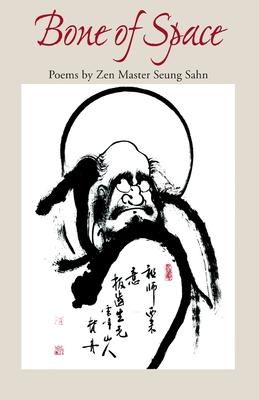Zen Master Seung Sahn is the first Korean Zen Master to live and teach in the West. After becoming disenchanted with academics and then radical politics as ways to help people understand life, he turned to Buddhism. Given transmission at the age of 22 by the famous Zen Master Ko Bong, Seung Sahn became the youngest Zen Master in Korea. After three years of silence, he worked to revitalize Korean Buddhism and became the abbot of five temples in Seoul. He taught in Japan, founding temples in Tokyo and Hong Kong; in 1972, he came to the United States and found the community of students which became the international Kwan Um School of Zen.
"Bone of Space is in the remarkable tradition of Zen poetry begun in China in the T'ang dynasty, and today -- on the evidence of these poems -- as much alive as ever. As with the ancient poems, the best of which revealed wisdoms too deep for prose, these startle with their boldness, freshness, sharp intuitions. The collection should be thrust at once into the face of American Zen, and well beyond." Lucien Stryk

Zen Master Seung Sahn is the first Korean Zen Master to live and teach in the West. After becoming disenchanted with academics and then radical politics as ways to help people understand life, he turned to Buddhism. Given transmission at the age of 22 by the famous Zen Master Ko Bong, Seung Sahn became the youngest Zen Master in Korea. After three years of silence, he worked to revitalize Korean Buddhism and became the abbot of five temples in Seoul. He taught in Japan, founding temples in Tokyo and Hong Kong; in 1972, he came to the United States and found the community of students which became the international Kwan Um School of Zen.
"Bone of Space is in the remarkable tradition of Zen poetry begun in China in the T'ang dynasty, and today -- on the evidence of these poems -- as much alive as ever. As with the ancient poems, the best of which revealed wisdoms too deep for prose, these startle with their boldness, freshness, sharp intuitions. The collection should be thrust at once into the face of American Zen, and well beyond." Lucien Stryk